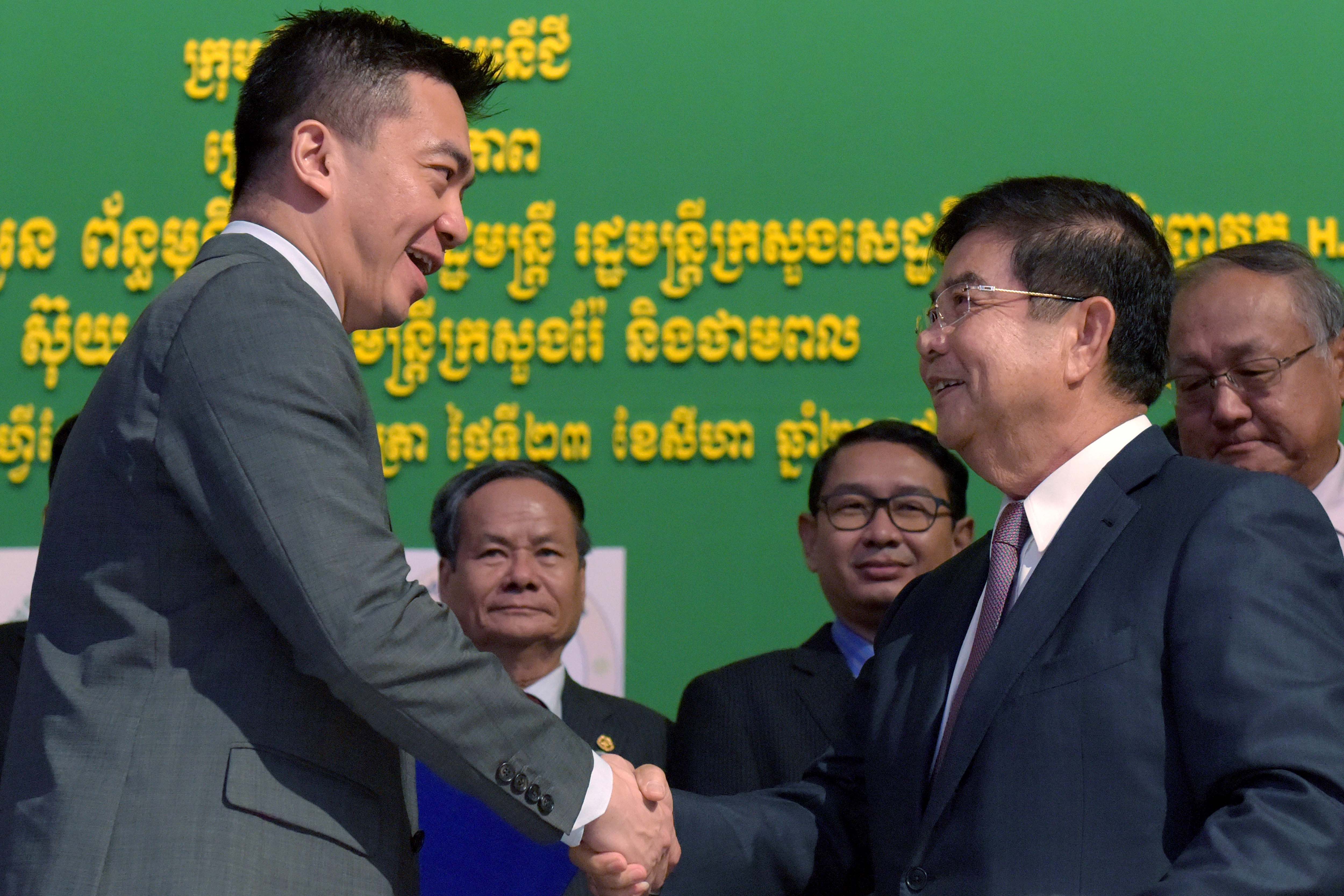Cambodia on Wednesday signed a deal with a Singaporean energy company to develop its first-ever oilfield, the latest move in the impoverished country's much-delayed plan to become an oil-producing nation.
KrisEnergy signed the agreement with the government in the capital Phnom Penh to develop an offshore field in the Gulf of Thailand which they hope will produce 8,000 barrels a day by 2020.
Energy Minister Suy Sem hailed the signing as a "historic event" and said the nation would become an oil producer country in the future.
The Gulf of Thailand boasts significant oil deposits that have been exploited by Thai and Malaysian companies since the 1980s.
But Cambodia, one of Asia's poorest nations, has been slow to get in on the act.
Chevron first found proven reserves in Cambodian waters in 2005.
The kingdom was soon feted as the region's next potential petro-state. Its government estimates there are hundreds of millions of barrels of crude and vast reserves of natural gas in six blocks off the coast.
But production stalled as the government and Chevron failed to agree over revenue sharing, leading the US oil giant to abandon the project and sell its stake to KrisEnergy in 2014.
Under the deal KrisEnergy will start extraction on one section of a 3,000 square kilometre (1,158 sq mile) block known as the Apsara field to the southwest of Cambodia's coast.
A single platform will be built, with plans for further platforms and the exploration of two more fields if the first becomes lucrative.
The Singaporean firm holds a 95 percent stake in the first block and the Cambodian government the remainder. Under the agreement KrisEnergy has 60 days to declare a final investment decision.
"This is is a major step. It is Cambodia's first oilfield," Kelvin Tang, chief operating officer of KrisEnergy, said during the ceremony.
Cambodia estimates it will make at least $500 million in royalties and taxes from the first phase of the project.
There are concerns that oil revenues could evaporate into its notoriously corrupt bureaucracy.
But Economy and Finance Minister Aun Pornmonitoth said the oil revenue would fuel economic development.
He said the government was fully prepared to avoid the "resource curse". – AFP
